17 Jul2019
By Jerrica Thurman and Donna Sacco
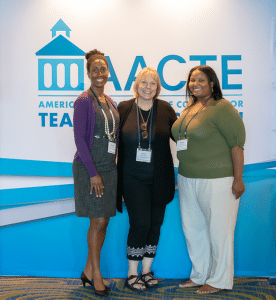 AACTE’s Jerrica Thurman first met Donna Sacco in 2015. Sacco was one of three doctoral students from George Mason University (GMU) who worked as an AACTE education intern, assisting in advocating for high-quality preparation programs and with its marketing communications. Thurman was pleasantly surprised when she saw Sacco at AACTE’s 2019 Washington Week with her two Holmes doctoral students from the University of North Carolina at Charlotte (UNCC). It was during her AACTE internship that Sacco learned about the Holmes Program and determined to make a personal contribution to help diversify the teacher workforce by becoming a Holmes advocate. The following summary highlights an interview Thurman had with Sacco about her journey from an intern to a change agent in education.
AACTE’s Jerrica Thurman first met Donna Sacco in 2015. Sacco was one of three doctoral students from George Mason University (GMU) who worked as an AACTE education intern, assisting in advocating for high-quality preparation programs and with its marketing communications. Thurman was pleasantly surprised when she saw Sacco at AACTE’s 2019 Washington Week with her two Holmes doctoral students from the University of North Carolina at Charlotte (UNCC). It was during her AACTE internship that Sacco learned about the Holmes Program and determined to make a personal contribution to help diversify the teacher workforce by becoming a Holmes advocate. The following summary highlights an interview Thurman had with Sacco about her journey from an intern to a change agent in education.
What piqued your interest in the issues of teacher diversity as a doctoral student at George Mason University and student intern at AACTE?
Before my doctoral program, I was a special educator with a master’s degree in bilingual special education. For my entire career, my focus has been on culturally and linguistically responsive instructional practices. Part of my drive came from the stories my father told me about the obstacles he experienced in his childhood as the son of Italian immigrants. He was a brilliant man but never went to college. He had one advocate who helped mentor him in appreciating the arts but had no teachers who were advocates, role models, or who understood his background. Once I began researching teacher education, I was surprised to learn that the teaching force is composed of roughly 80% white female teachers. How had I missed that obvious point? I am a white female who was teaching mostly boys of
17 Jul2019
By Jennie Carr

This article by AACTE Board member Jennie M. Carr and photo originally appeared in Faculty Focus and is reprinted with permission. ©Magna Publications.
I once heard a colleague explain that their office hours were intentionally scheduled from 8 am to 10 am because students are still asleep. The professor laughed, but I cringed. That thought process is so far from my teaching philosophy, which is dedicated to developing and supporting students, that the intentionality of the comment prompted me to reflect on my own process for scheduling office hours.
At the beginning of each semester, I review my teaching assignments and then create a balanced schedule based on course days and times, various committee and departmental meetings, services, and office hours. For several years, like many of my colleagues (maybe even you), I selected office hours based on
17 Jul2019
By Linda Minor
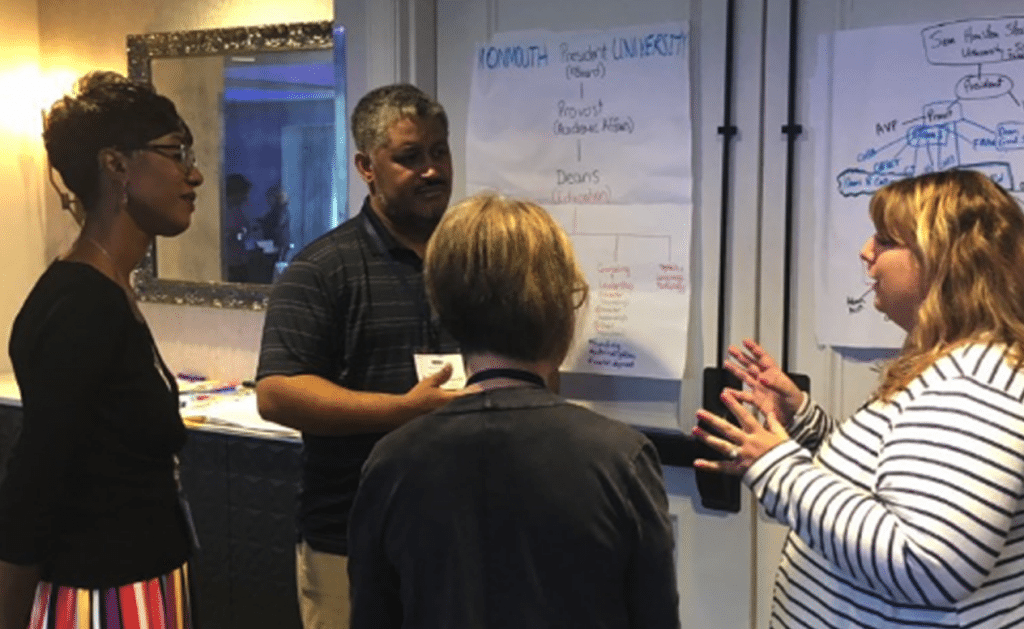
More than 90 leaders from education programs across the country convened in Pittsburgh, PA. for AACTE’s 2019 Leadership Academy, June 23-27. Attendees shared their experiences on Twitter using #AACTELA19 and offered testimonials about their experience. Here’s what a few participants had to say:
“The AACTE Leadership Academy was a fantastic opportunity! The combination of the excellent instructors, event organization, and content contributed to an extremely worthwhile experience. While I expected to learn more about leadership, I did not anticipate how important the other participants were going to be to the Academy. My network has significantly expanded as a result of the Leadership Academy, and my new colleagues (and friends) are a wealth of informa
17 Jul2019
By Elisabeth Tavarez

This article and photo originally appeared on the Marist website and are reprinted with permission.
Marist’s Education Department is well known for preparing students to become effective teachers and leaders in their schools and communities. Its programs emphasize the role of research and technology and the importance of critical thinking, creative problem solving, and multicultural and global perspectives. Consistent with Marist’s commitment to being actively engaged in the community, the Department recently hosted two groups of local schoolchildren in an effort to advance two worthy goals: exposing students from underrepresented groups to a college campus and encouraging them to consider teaching as a career.
On May 20, Marist welcomed a group of 20 English as a New Language (ENL) students in the third, fourth, and fifth grades at Balmville Elementary School, a public school in the Newburgh Enlarged City School District. The visit, the third in three years for students from Balmville, stems from the work of Professional Lecturer of Education Christina Wright Fields to promote the ideas of pursuing a college education and becoming a teacher. During their half-day visit to the College, the students toured the Marist campus, ate lunch, and participated in a session led by Fields and Assistant Professor of Education Mary Kelly in which they developed a storyboard from children’s literature; in past years, these faculty-led sessions have included tree identification and STEM educational hands-on activities. Notes Associate Dean for Teacher Education Edward Sullivan, “Essentially, we like to expose the Balmville grade-schoolers to various academic departments on campus to expand their knowledge base and present them with different educational possibilities. We also involve Marist education students in these visits to help the schoolchildren visualize themselves as future college students engaged in helping others to learn.”
15 Jul2019
By Jane E. West

Congress came back to Washington this week with a boatload of work to do in the short few weeks before the next recess, in August. It could be a long hot summer.
First up: Budget and Funding
When Congress left for July 4 recess, the House had passed almost all of the 12 required funding bills and the Senate had not begun with any of the 12 bills. September 30 marks the end of the fiscal year; without the new spending bills signed into law, a government shutdown will be in the offing. With Congress scheduled to be in recess most of August, the pressure is on.
The holdup is the budget—or the overall spending cap, which the House, the Senate, and the White House must agree to pass. While the House adopted its own budget caps, they are higher than those that the Senate or the White House will accept. Added to the mix is the pending need to raise the debt ceiling (this is the borrowing limit for the federal government, which routinely needs to be raised to avoid default). Thus, the pressure is on from three corners: budget, FY 2020 funding bills, and debt ceiling. These three dire needs are in the mix together and there is an effort to wrap their resolution into one package—possibly before the August recess. Learn more.
Senate Confirms New Higher Education Leader for Department of Education
12 Jul2019
By Deborah McEwan, Danna Demezier, Shanett Dean, Denise Dowdie and Rangasamy Ramasamy

BIG Data may not be “a piece of cake” but during a presentation by Charles Dukes, students and faculty noted that it can be a slice of pie. On April 11, 2019, Holmes Scholars at Florida Atlantic University (FAU) hosted a seminar, “The story of big data, with all the small details,” featuring Dukes, associate professor in the Department of Exceptional Student Education at UFA. Some 25 doctoral students and faculty, along with a Holmes Scholar from the University of Central Florida, attended the seminar with FAU’s Holmes Coordinator Rangasamy Ramasamy and Holmes Scholars Denise Dowdie, Danna Demezier, Shanett Dean, and Deborah McEwan (pictured above with Dukes). During the seminar, Dukes defined “big data” and explored how such data may be used for social science research. He also shared “big data” links that anyone can access, reviewed primary considerations for its usage, and provided an overview of a current research study with big data.
12 Jul2019
By Andrew Fox
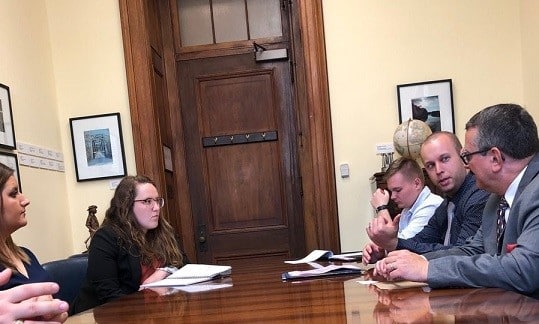
During Washington Week 2019, I participated in AACTE Day on the Hill and advocated for the education profession for the first time. As a recent graduate of The Citadel’s school counselor program, I was eager to learn what our government is currently doing for the field of education. I also thought about what I could bring to the discussion from different perspectives. My career in education started later than most. After serving four years in the active duty Air Force, I joined the Air Force Reserve and began my master’s in school counseling. This would allow me to share my viewpoint as an educator entering the workforce, as well as a working professional from outside the education world.
Being a new educator, the first idea I wanted to present was restructuring the Public Service Loan Forgiveness program to make it easier and better fit the needs of those in the profession. Most people outside of education do not know that school counselors are required to have a master’s degree, which puts an even greater student loan burden on them. For new educators like me, informing congress that current programs are either broken or do not fit the entire education picture is important. I feel that congress may be overlooking the levels required for the different types of educator preparation.
11 Jul2019
By Jerrica Thurman
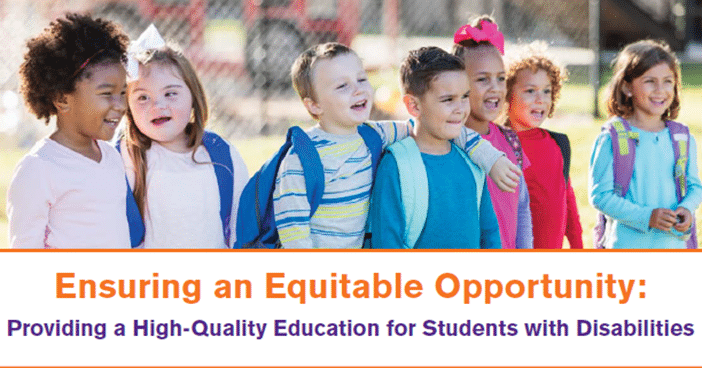
The Council of Chief State School Officers (CCSSO) recently released Ensuring an Equitable Opportunity: Providing a High-Quality Education for Students with Disabilities, a report that details policy and practice considerations around individualized education plans chiefs and state education leaders can reflect upon and implement in ensuring all students, especially students with disabilities, have access to a high-quality education. Students with disabilities are provided with an individualized education program (IEP) to ensure they receive specially-designed instruction and related services. The IEP is the primary mechanism for ensuring students with disabilities receive the right educational content and rigor at the right moment in their education.
The Education for All Handicapped Children Act of 1975 marked an historic win for civil rights when the doors to public education were opened for all students. For the first time, children with disabilities had access to a public education and the hope of a productive and fulfilling future. Today, the Individuals with Disabilities Education Act of 2004 (IDEA), the most recent iteration of that law, aims to deliver on that promise; namely, that all students with disabilities have equitable access to a free appropriate public education (FAPE) in the least restrictive environment.
11 Jul2019
By Roger Riddell and Naaz Modan

Credit: Roger Riddell/Education Dive
The following is an excerpt from an article originally published in Education Dive and is reprinted with permission. The article summarizes the 2019 annual International Society for Technology in Education (ISTE) conference in June.
Prepping new student teachers for digital learning
In a Monday morning session, ISTE Standards Senior Director Carolyn Sykora, ISTE Higher Education Recognition Program Lead Reviewer Sarah McPherson and the Fairfield University Graduate School of Education and Allied Professions’ Joshua Elliott detailed how ISTE is working with teacher preparation programs to recognize their quality and provide a simpler path to the ISTE Certification for Educators.
According to data from the U.S. Department of Education cited by Sykora, 146,000 graduate degrees in education were awarded in 2016, and there were 451,000 pre-service educators in 2014. The department also made a higher ed policy addendum to its National Education Technology Plan, to which Sykora noted there’s a lot of alignment between recommendations and the ISTE Standards for Educators and Students.
That’s noteworthy, given that a number of states—including Wisconsin, Michigan, Connecticut, Vermont, Texas, Washington, Delaware, Iowa, Utah, New York, Wyoming and Arkansas—and individual districts are adopting the standards.
09 Jul2019
By Brandon R.T. Frost
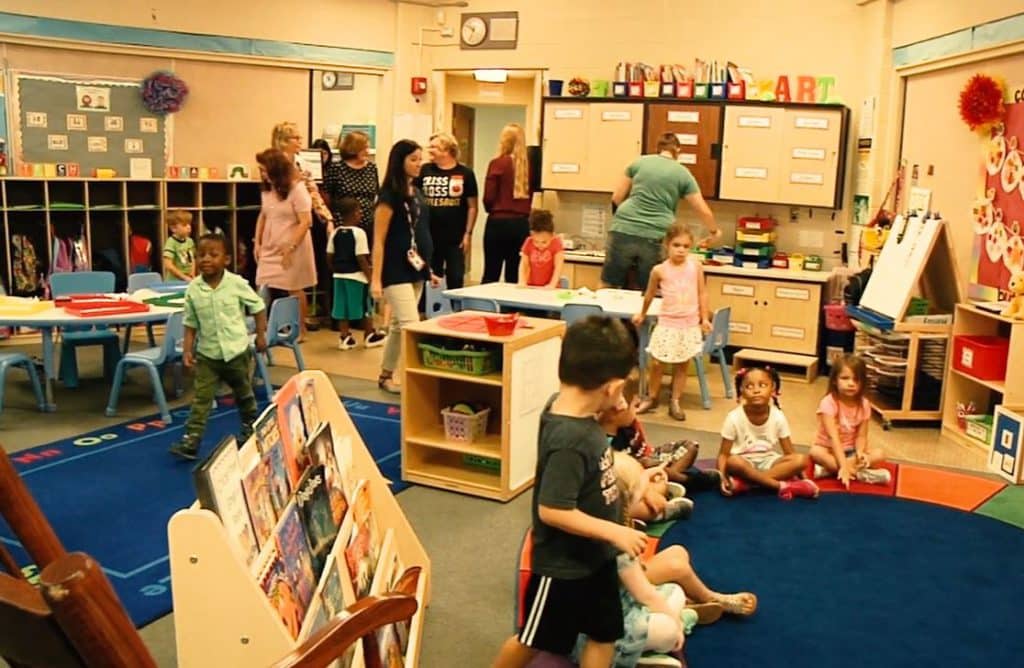
The Dual Licensure component of the Inclusive Early Childhood Program at Bowling Green State University (BGSU) supports teachers by improving their teaching craft and ensuring that teachers’ instructions remain relevant to their students.
Brenda Gift, the director of student services at Educational Services Center of Lake Erie West, applauds the program for providing high quality teachers who are eager to work in integrated classrooms. She further asserts that school districts are more likely to hire BGSU teacher candidates because of their dual licensure. Not only does the dual licensure indicate that teacher candidates can support all students, but it makes them marketable and competitive for hiring.
Some of the mentor teachers in partner school districts who support BGSU teacher candidates are BGSU alumni. Despite the responsibilities of being a classroom teacher, they value mentoring BGSU teacher candidates because they know how important it is to have an effective and supportive host teacher. The early childhood students benefit from teacher candidates because it provides a smaller teacher-to-student ratio. Teacher candidates agree that having proper training for inclusive education benefits them and the students they teach, assuring they are ready to instruct all learners once they enter the classroom.
To learn more, watch the What’s In It for Me? video highlighting BGSU’s Models of Inclusive Clinical Teacher Preparation, part of AACTE’s Research-to-Practice Spotlight Series.
09 Jul2019
By Michelle Buehl and Jane Vogler
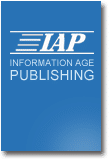 As co-editors, we are seeking chapter authors for a book we are publishing with IAP: Information Age Publishing titled Teaching Learning for Effective Instruction. The volume is part of the series, Theory to Practice: Educational Psychology for Teachers and Teaching, and it is scheduled to be released in early spring 2021.
As co-editors, we are seeking chapter authors for a book we are publishing with IAP: Information Age Publishing titled Teaching Learning for Effective Instruction. The volume is part of the series, Theory to Practice: Educational Psychology for Teachers and Teaching, and it is scheduled to be released in early spring 2021.
Education researchers and practitioners are invited to submit chapter proposals between 500-750 words by September 15, 2019. Chapters in this volume may include
- a review of the empirical research that supports the teaching of learning and cognition as it applies to P-12 settings;
- a description of instructional practices used in college courses that have been effective in teaching about and modeling principles of learning and cognition; or
- a systematic discussion of issues surrounding the teaching of learning and cognition theories, research, and classroom applications, with clear connections between the empirical literature and the instructional practices.
09 Jul2019
By Lynn M. Gangone
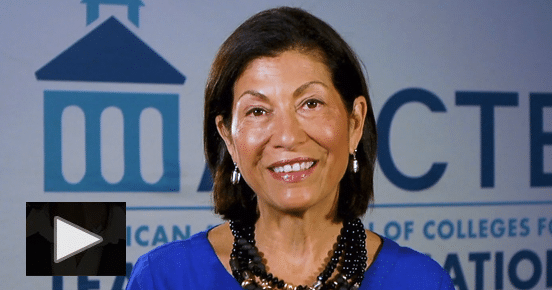 I am excited to report that the AACTE Board of Directors approved a new Strategic Plan framework during their meeting in Washington, DC last month. Our Board adopted new vision and mission statements that are bold, innovative, and will facilitate building the Association’s overall strategic plan. Please take a few minutes to watch the video above (or read the transcript) to learn more about your Association’s new direction.
I am excited to report that the AACTE Board of Directors approved a new Strategic Plan framework during their meeting in Washington, DC last month. Our Board adopted new vision and mission statements that are bold, innovative, and will facilitate building the Association’s overall strategic plan. Please take a few minutes to watch the video above (or read the transcript) to learn more about your Association’s new direction.
AACTE is committed to elevating education and educator preparation through research, professional practice, advocacy, and collaboration. Be a part of our exciting work by actively engaging in our efforts. Learn more about AACTE’s initiatives and how to get involved by visiting aacte.org.
01 Jul2019
By Jane E. West
This blog post is written by AACTE consultant Jane West and is intended to provide update information. The views expressed in this post do not necessarily reflect the views of AACTE.
Congress is headed out of town today for the week-long July 4 recess next week. Check your local July 4 parades and picnics—Members of Congress often show up there and it is a great time to connect with them!
What Can we Expect When Congress Returns July 8?
- Congressional Schedule
The Congress returns July 8 for about four weeks. Then they head into the August recess. They will be back for about four weeks in September. This equals about 27 legislative days left before the October 1 beginning of the FY 2020 fiscal year. Conventional wisdom holds that the closer we get to being all consumed by the next election, the less Congress will get done. Time is short, but there are always surprises!
- Appropriations
Once again, we may be facing a government shutdown in October. Before that time all 12 appropriations bills must be completed, and some action on the debt ceiling must be taken. (The debt ceiling is when the government is about to exceed its borrowing authority and thus, must increase the amount it can borrow, in order for the government to continue to function.) This is a tall order with only 27 legislative days.
- Higher Education Act
The Senate HELP Committee has been working for months on a bipartisan bill to reauthorize the Higher Education Act. Yet the long-awaited draft has yet to materialize. The big hold up appears to be how colleges and universities should respond to allegations of sexual assault on campus—a provision housed in Title IX of federal civil rights law. In fact, HELP Committee Chair Lamar Alexander (R-TN) and ranking member Patty Murray (D-WA) asked a bipartisan group of six senators to meet to try to resolve this issue.
What Should We be Watching in the Federal Agencies?
01 Jul2019
By Katrina Norfleet
AACTE board member Donald Easton-Brooks is widely known as a scholar of educational policy and culturally responsive teaching. This year, he released his book Ethnic Matching: Academic Success of Students of Color. In a recent Q&A with AACTE President and CEO Lynn M. Gangone, Easton-Brooks talked about the book and how his research shows diversifying the teaching profession will ultimately improve student’s success. The following summary highlights the conversation.
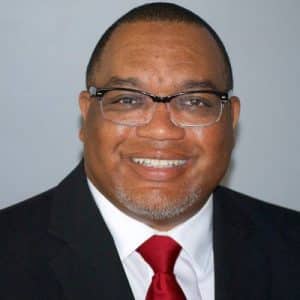 How would you describe the concept of ethnic matching and its importance to student learning?
How would you describe the concept of ethnic matching and its importance to student learning?
What ethnic matching initially suggests is that teachers of color can play a significant role in enhancing the academic experience of students of color. As this research and other research progress, findings have shown that teachers of color can play a significant role in also enhancing the academic experience of white students and can assist in enhancing a more culturally responsive profession as a whole. Therefore, the concept and research related to the concept suggest that we need to diversify teacher education. Mainly because as our communities are becoming more diverse, we are seeing our public schools also becoming more diverse. Yet what is happening is that our educator profession is not growing at a similar rate as these communities of students. The research around the concepts shows that perceived knowledge or knowledge from a preceptive culturally lens can play a role in students’ understanding of concepts, learning, and processing of information. This often can lead to these students being misinterpreted by teachers and feeling somehow misunderstood by teachers if they do not have that cultural lens to understand them. That is what teachers of color can bring to the table that can be of assistance to educational systems.
01 Jul2019
By Joanna Masingila
The journal of the New York Association of Colleges for Teacher Education, 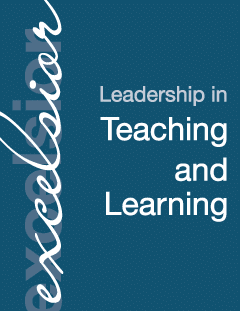 , has successfully navigated from a print journal with a subscription price to an online, open access journal that is free. Our new co-editors, Christine Ashby and Julia White have just published their first issue. The journal welcomes submissions from all interested teacher and leader educators.
, has successfully navigated from a print journal with a subscription price to an online, open access journal that is free. Our new co-editors, Christine Ashby and Julia White have just published their first issue. The journal welcomes submissions from all interested teacher and leader educators.
Excelsior is the key outlet for publishing work in teacher preparation for the New York Association of Colleges for Teacher Education. For over a decade, it has reported research across content disciplines, research methodologies, theoretical perspectives, and current issues in the field.
In addition to presenting authors the opportunity to publish in an open access journal, we want to increase the diversity of manuscript topics, including the diversity of research methods, and extend the range of researchers and practitioners publishing in Excelsior. To meet this goal we will routinely solicit submissions from:
 AACTE’s Jerrica Thurman first met Donna Sacco in 2015. Sacco was one of three doctoral students from George Mason University (GMU) who worked as an AACTE education intern, assisting in advocating for high-quality preparation programs and with its marketing communications. Thurman was pleasantly surprised when she saw Sacco at AACTE’s 2019 Washington Week with her two Holmes doctoral students from the University of North Carolina at Charlotte (UNCC). It was during her AACTE internship that Sacco learned about the Holmes Program and determined to make a personal contribution to help diversify the teacher workforce by becoming a Holmes advocate. The following summary highlights an interview Thurman had with Sacco about her journey from an intern to a change agent in education.
AACTE’s Jerrica Thurman first met Donna Sacco in 2015. Sacco was one of three doctoral students from George Mason University (GMU) who worked as an AACTE education intern, assisting in advocating for high-quality preparation programs and with its marketing communications. Thurman was pleasantly surprised when she saw Sacco at AACTE’s 2019 Washington Week with her two Holmes doctoral students from the University of North Carolina at Charlotte (UNCC). It was during her AACTE internship that Sacco learned about the Holmes Program and determined to make a personal contribution to help diversify the teacher workforce by becoming a Holmes advocate. The following summary highlights an interview Thurman had with Sacco about her journey from an intern to a change agent in education. 


















